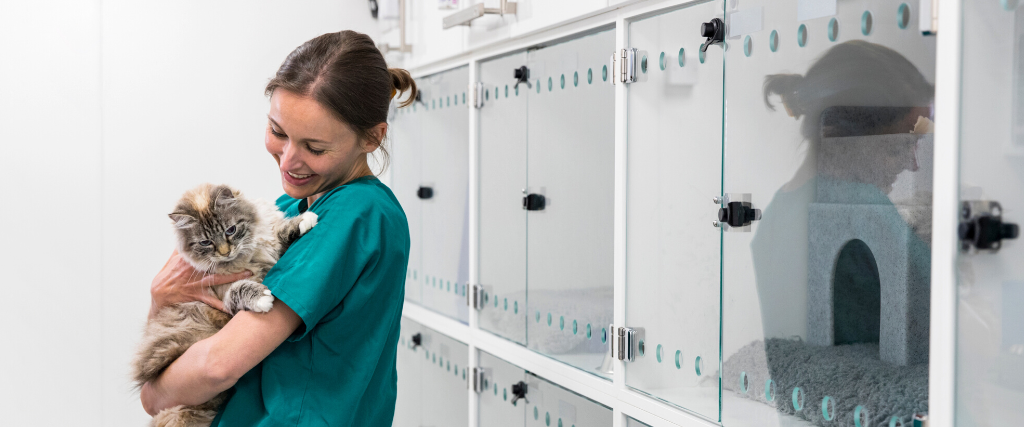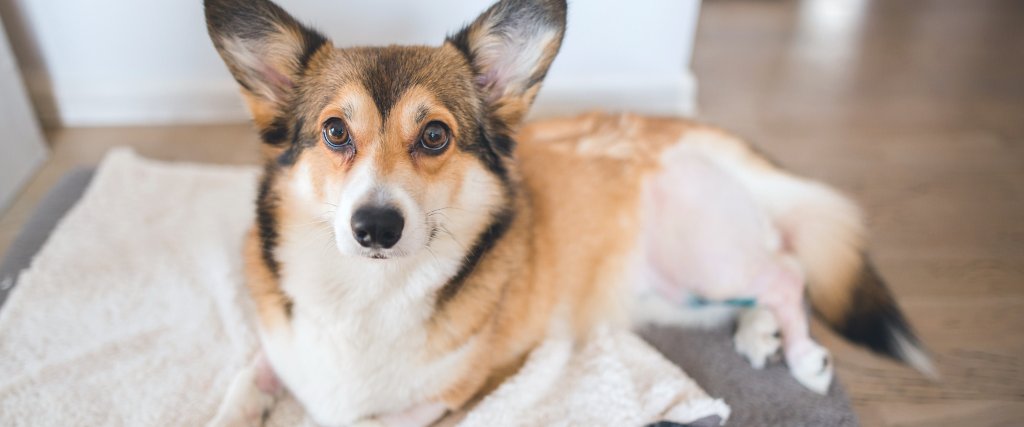One of the most anxiety-inducing experiences for pet owners is having to take their furry friend in for surgery. Whether it's a routine procedure or something more serious, no one wants to see their pet go through anything uncomfortable, and it's normal to feel a bit nervous when sending your four-legged best friend into surgery. Fortunately, there are things you can do to help make the experience as smooth as possible—both for your pet and for yourself.
As your pet's veterinarian, we will provide you with detailed instructions before their procedure. However, there are also a few general rules you should follow to ensure a successful surgery. Keep reading to discover the top five tips for preparing your pet for surgery, and don’t hesitate to contact us directly if you have any questions.
Plan for Blood Tests to Ensure Your Pet Is Healthy Enough for Anesthesia
Comprehensive blood work is a crucial part of the preparation for any surgical procedure. It lets us assess your pet's overall health and look for problems that could make them poor candidates for surgery. Typically, we schedule blood work a few days before surgery.
Routine blood tests are effective in helping us detect any issues with your pet's health that may interfere with the procedure, such as anemia or organ dysfunction. This helps us give your pet the best and safest care possible. Blood work is especially important for pets over 7 years old, as age-related changes can affect the body’s ability to handle anesthesia. A thorough review of the results prior to administering anesthetics ensures that our team is taking every necessary precaution to make sure your beloved pet is safe and comfortable throughout their procedure.

Keep Your Pet Calm and Quiet the Night Before Surgery to Reduce Stress
Undergoing veterinary surgery can be a stressful experience for your pet. To make sure things go as smoothly as possible and prevent unnecessary stress, it’s important to keep your pet calm the night before their procedure. Don't allow them to be overly rambunctious. Instead, spend some extra time cuddling or taking them on a relaxed walk to get rid of any pent-up energy and reduce their stress.
You should also avoid giving them too much to eat right before bed (and you definitely shouldn't give them anything after midnight!) so they will have an easier time sleeping soundly through the night. Making sure that your pet is properly rested and relaxed will help ensure a successful operation. Keeping your pet calm prior to surgery will help you get a better night's sleep and feel less stressed when you wake up the morning of their operation, too.
Don't Give Your Pet Any Food After Midnight (Or the Time We Tell You)
We want to do everything we can to ensure that your pet is safe before, during, and after surgery. For that reason, it's important that you follow a few simple guidelines, including not giving your pet food after midnight the night prior to surgery. In some cases, we may even recommend fasting your pet longer. Fasting is essential because it helps our team better manage anesthesia and ensure optimum safety for your pet throughout the entire procedure.
While giving your furry friend a treat when they wake up might not seem like a big deal, the consequences of doing so could be dire. Pets need to have an empty stomach before going into surgery to prevent them from regurgitating and potentially aspirating their food. If your pet does eat anything during the time they are supposed to be fasting, please let us know right away. For safety reasons, we may need to reschedule their surgery. If you have any questions about fasting your pet, please contact us.
Drop Your Pet Off Early
To ensure your pet is as comfortable as possible throughout the procedure, we encourage you to drop them off at the hospital by the time we tell you. Showing up a bit early is much better than showing up late in this situation. When you drop your pet off early, our experienced staff will help settle them in and make sure they have everything they need so they can be calm before surgery. Having a few extra minutes also provides a bit of time to give your pet some extra love and comfort before you leave, which eases anxiety for you and your furry friend.
Having our patients in the hospital prior to their procedure helps us evaluate their normal behavior. In doing so, we are better able to determine signs of pain or discomfort after recovery from anesthesia. Also, since we typically have 4-6 patients admitted for surgery each day, this added time in the morning is used for the veterinarian to perform a thorough examination of your pet prior to anesthesia. We also collect their vital signs including weight, body temperature, heart rate, and respiratory rate. In some situations, the pet may need IV fluids prior to anesthesia. Your veterinarian will let you know if that is the case.
Give Your Pet Their Usual Medications Before Surgery
When it comes to pre-surgical preparations, ensuring your pet takes their usual medications on the day of the surgery is a vital part of making sure the procedure goes as smoothly as possible. Your pet's medical history and current health should be taken into account when determining which medications should be given. We will let you know if there are any that you should withhold. We may also prescribe additional medication—like an anti-anxiety pill—to give them before bringing them in. Do not offer food or water with your pet's medicine unless directed to do so.
To ensure the safety of your pet and the success of the operation, it is important to follow our instructions so that all necessary medications are given before surgery. If you have any questions or concerns or are unsure about anything regarding your pet's medication needs prior to surgery, please do not hesitate to reach out to us. We are here to help.

Closing Thoughts
By following the suggestions we’ve outlined above, you can help ensure that your pet has a successful surgery. Surgery can be a stressful experience for both you and your pet, but by being prepared ahead of time, you can help make it go as smoothly as possible. If you have any questions about preparing your pet for their upcoming surgery, please get in touch with your veterinarian. Their team of experienced veterinarians would be happy to answer any of your questions and ease your mind before surgery day.
Don't have a vet in your area yet? We can help you find a local veterinarian.
